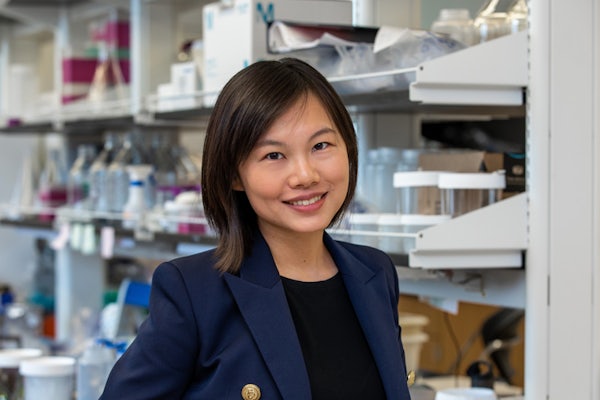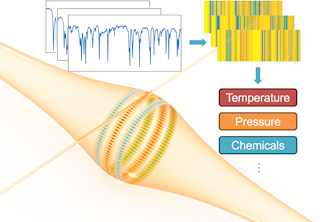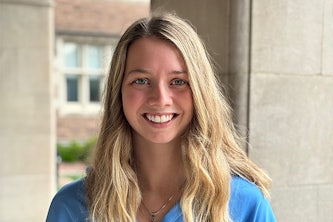Washington People: Fangqiong Ling
Making science accessible to the community

There are some people who seamlessly blend knowledge and passion. Fangqiong Ling is one of those people. Her love for science is palpable; her ability to use science to improve society is what makes her a standout in her field.
Ling’s love for science began at an early age. She grew up in China, surrounded by a community of people who encouraged her to delve into science and technology.
“A kind of defining moment for me was in high school, when Beijing had the chance to host the Olympics,” said Ling, assistant professor of energy, environmental and chemical engineering at the McKelvey School of Engineering. “That’s when I started to look around and say, ‘We experienced this much economic growth, are we paying attention to our environment?’”
Through her high school science club, she and her classmates worked with a professor at Beijing Normal University to study the benthic invertebrates — organisms such as insect larvae and worms — in the scenic ponds in Beijing, with the goal of using the identity and diversity of those organisms to indicate water quality.
“I found field work and data analysis really fulfilling,” Ling said.
Now as a faculty member at Washington University in St. Louis, she created a program that does the same for high school students in the St. Louis community.
She and her PhD students are working with the Institute for School Partnership on a funded outreach program called “OurH2hOme.” Her team works with St. Louis families to study the microorganisms found in the water in local homes. The program helps to connect WashU experts with the local community.
“We have a shared interest in water quality within homes, and we were delighted when Fangqiong reached out to us to integrate our expertise on lead in drinking water with her group’s focus on the microbiome of premise plumbing,” said Daniel Giammar, the Walter E. Browne Professor of Environmental Engineering at the McKelvey School of Engineering and one of Ling’s colleagues. “I admire Fangqiong’s creativity and her enthusiasm for engaging with students and teachers in citizen science.”
Ling and her team have packed water sampling kits. Her students have trained more than 10 teachers at three local high schools, and the teachers in turn train the students to complete the scientific study.
This effort was especially beneficial for high school students during the pandemic when they were away from their labs. Ling started planning the program after she joined the university in 2018.
“Engaging our local community also allows us to explore new scientific hypotheses about water microbiology,” Ling said. “The benefits are really mutual.”




